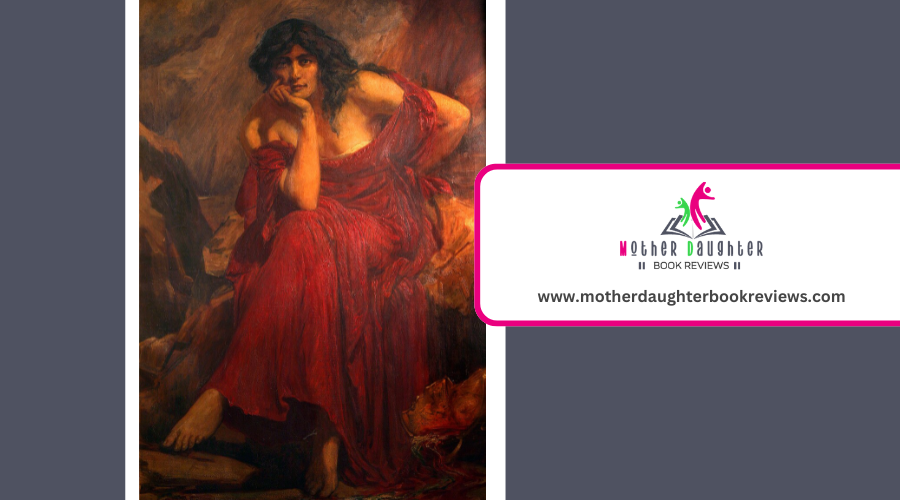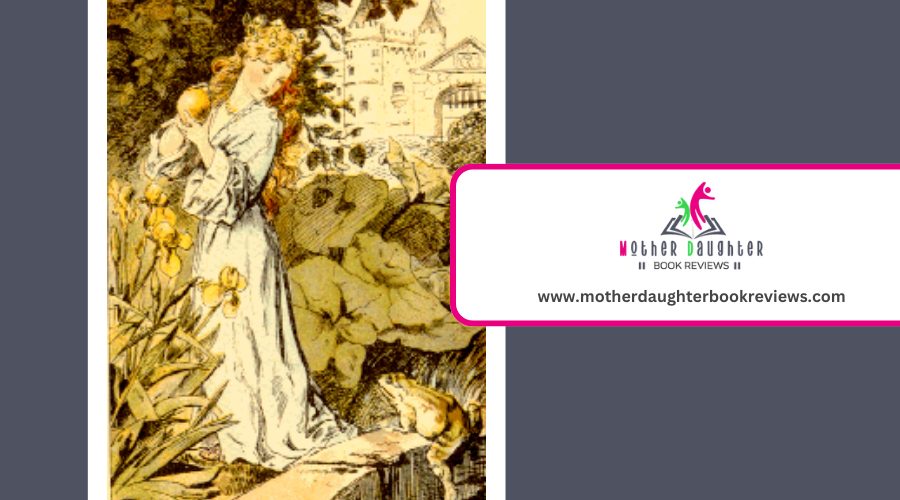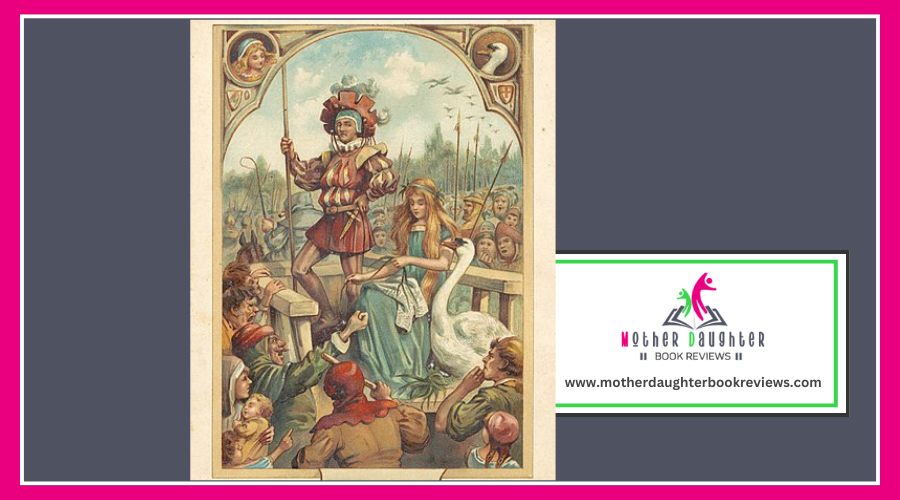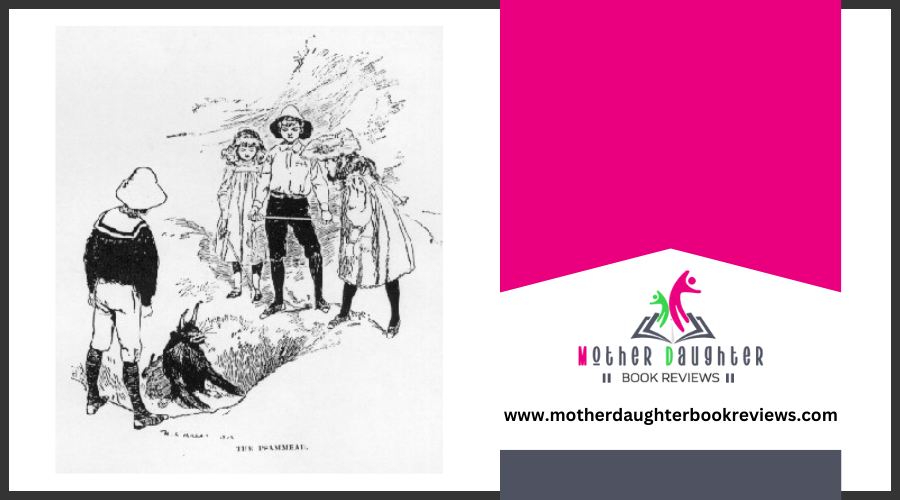Mythology and Transformation in Ovid’s Metamorphoses
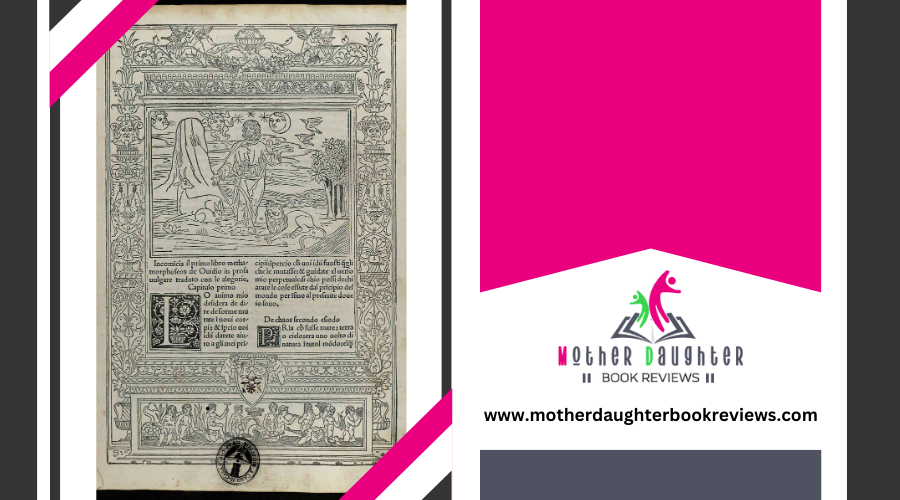
In Ovid's "Metamorphoses," you'll find enthralling tales of transformation and consequence that resonate even today. Narcissus, obsessed with his reflection, becomes a cautionary symbol of vanity, while Daphne's desperate flight transforms her into a laurel tree to escape Apollo. Arachne's hubris results in her becoming a spider, and King Midas learns the hard truths about greed with his cursed golden touch.
The Tale of Narcissus
"The Tale of Narcissus" is one of the most enchanting stories in Ovid's Metamorphoses, illustrating the dangers of excessive self-love. As you explore this myth, you'll find the character of Narcissus, a handsome young man who becomes so enamored with his own reflection that it leads to his demise. The story begins with Narcissus rejecting the love of the nymph Echo, who then fades away until only her voice remains.
You'll notice how the tale unfolds with Narcissus stumbling upon a clear pool of water. He becomes captivated by the image he sees, not realizing it's his own reflection. As he gazes longer, his obsession deepens, trapping him in a cycle of unfulfilled desire. You'll see how he can't tear himself away, eventually wasting away and transforming into the flower that bears his name.
This myth serves as a powerful cautionary tale. It warns you about the perils of vanity and self-obsession, urging a more balanced view of oneself. By engaging with this story, you gain insight into the timeless human condition and the importance of self-awareness and humility.
The Story of Pygmalion
In Ovid's Metamorphoses, "The Story of Pygmalion" captivates with its exploration of art, desire, and transformation. You follow Pygmalion, a talented sculptor disillusioned by the corruption he sees in the women around him. He decides to create his ideal woman from ivory, carefully crafting a statue of unparalleled beauty. Pygmalion names her Galatea and soon finds himself inescapably in love with his creation.
You witness his growing obsession, as he adorns Galatea with gifts and speaks to her as if she were alive. Pygmalion's longing reaches its peak during the festival of Venus, where he prays fervently for a wife like his statue. Moved by his sincerity, Venus breathes life into Galatea, transforming her from cold ivory to warm flesh.
The moment Galatea comes to life, you feel the magic of transformation and the fulfillment of Pygmalion's deepest desires. His creation becomes his companion, embodying both his artistic vision and his ideal of womanhood. Through Pygmalion's tale, you grasp the powerful themes of creation, love, and the boundary between art and reality, making it an unforgettable part of Metamorphoses.
Daphne's Transformation
One of the most poignant transformations in Ovid's Metamorphoses is Daphne's desperate escape from Apollo. You find yourself in the midst of a chase, where Daphne, a beautiful nymph, flees from Apollo, the god of prophecy and music, who has become infatuated with her. Apollo, struck by Cupid's arrow, longs for Daphne, but she, wishing to remain chaste, runs as fast as she can.
As the chase intensifies, Daphne's strength wanes. You can feel her desperation mounting as Apollo closes the gap. Just as he reaches out to grasp her, Daphne calls upon her father, the river god Peneus, to save her. In a moment of divine intervention, Peneus transforms Daphne into a laurel tree. Her limbs turn into branches, her hair into leaves, and her feet root into the ground.
Apollo, heartbroken yet admiring, vows to honor her forever. He declares the laurel tree sacred and adorns his head with its leaves. Through this transformation, Daphne escapes Apollo's pursuit, yet her essence remains forever intertwined with his, symbolizing the bittersweet nature of unrequited love and eternal devotion.
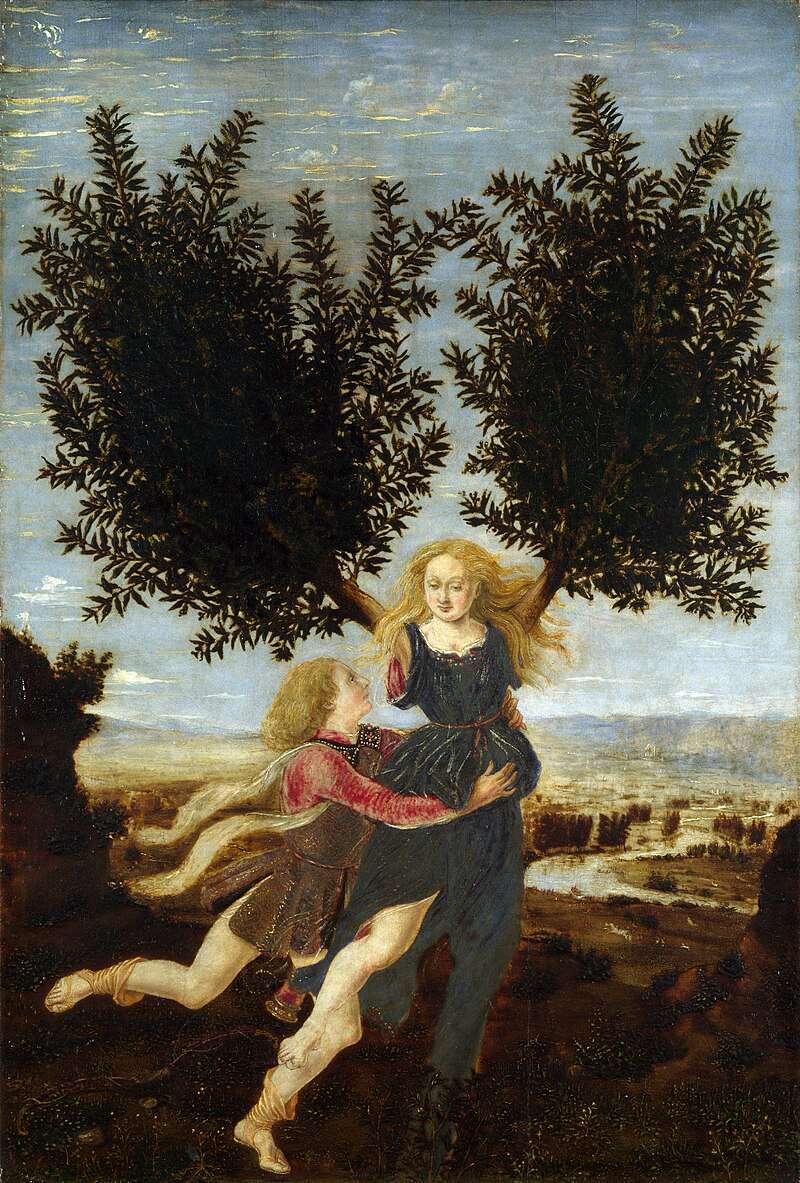
Arachne's Punishment
Having investigated the poignant story of Daphne's transformation, you now encounter another tale of change and consequence in Ovid's Metamorphoses. Arachne, a talented weaver, dares to challenge the goddess Minerva to a weaving contest, boasting about her unparalleled skill. You see, Arachne's arrogance and disrespect towards the gods lead her to a fateful encounter.
Minerva, disguised as an old woman, warns Arachne to humble herself and respect the divine. Arachne refuses, and so the contest begins. Both weave magnificent tapestries, but Arachne's work, depicting the gods' misdeeds, is flawless and provocative. Minerva, enraged by the audacity and perfection of Arachne's creation, destroys the tapestry and strikes Arachne.
You witness the tragic transformation as Minerva decides on a fitting punishment. Arachne's body contorts, her limbs shrink, and she becomes a spider, condemned to weave for eternity. This metamorphosis serves as a stark reminder of the consequences of hubris and the importance of humility.
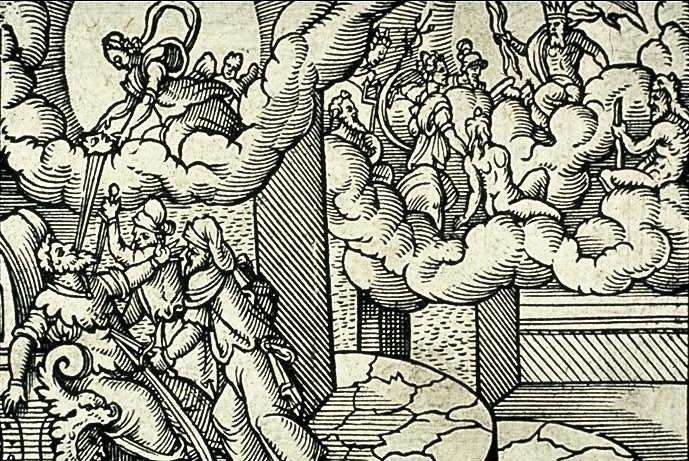
The Legend of Echo
Many tales in Ovid's Metamorphoses captivate with their blend of beauty and tragedy, and the legend of Echo is no exception. You find yourself drawn into Echo's world, a nymph cursed by Hera. Echo had a habit of talking too much, which annoyed the goddess. Hera, in her wrath, condemned Echo to only repeat the words others spoke. This cruel twist of fate turned Echo's life into a silent struggle, as she could no longer express her own thoughts or feelings.
Imagine Echo wandering the forests, unable to initiate conversation, only able to mimic the voices of those she encountered. Her curse led her to a tragic encounter with Narcissus, a beautiful youth who fell in love with his reflection. You feel Echo's pain as she falls for Narcissus but can only echo his words, never conveying her true emotions. Heartbroken, she withers away from unrequited love, leaving behind just her voice.
In Echo's tale, you see the powerful themes of love, loss, and the consequences of divine wrath. This poignant story from Metamorphoses lingers, reminding you of the delicate balance between communication and isolation.
The Adventures of Hercules
Brace yourself for the exhilarating exploits of Hercules, a hero whose strength and courage have become legendary. You'll marvel at his incredible feats, starting with the Twelve Labors, a series of challenges so formidable that only Hercules could conquer them.
First, imagine facing the Nemean Lion, a beast so fierce its hide was impervious to weapons. Hercules didn't flinch; he strangled the lion with his bare hands. Next, he tackled the Hydra, a serpent with multiple heads that regrew when cut off. Hercules used his wits, cauterizing each neck to prevent regrowth.
Then, picture capturing the Golden Hind, a creature so swift it seemed impossible to catch. Hercules pursued it for a year, showcasing his relentless determination. He also cleaned the Augean stables, home to thousands of cattle, in a single day by rerouting two rivers.
Hercules' adventures didn't stop there. He seized the Erymanthian Boar, subdued the man-eating mares of Diomedes, and retrieved the belt of Hippolyta, Queen of the Amazons. Each labor tested not just his strength, but his ingenuity and perseverance.
Midas and His Touch
Imagine a world where every object you touch turns to gold. That's the reality King Midas finds himself in after being granted a wish by the god Dionysus. At the beginning, it seems like a dream come true. You can imagine the endless wealth and the power that comes with it. Yet, Midas soon learns that his golden touch is more of a curse than a blessing.
Every bite of food he tries to eat turns into inedible gold. Even his beloved daughter becomes a lifeless golden statue with just a touch. Midas's joy turns to despair as he realizes the dire consequences of his greed. He begs Dionysus to take back the gift, and the god instructs him to wash in the River Pactolus to cleanse himself of the golden touch.
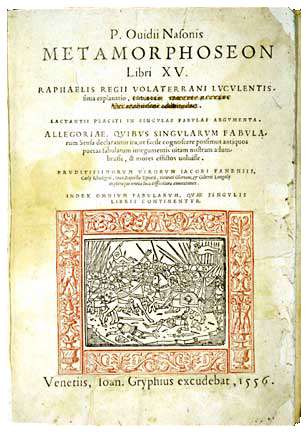
Conclusion
From the vanity of Narcissus to the arrogance of Arachne, these stories resonate with timeless themes of pride, love, ambition, and the perils of crossing the gods. The transformations serve not only as physical changes but as moral lessons, urging us to reflect on our own actions and desires. Whether it is Midas learning the bitter cost of greed or Daphne finding freedom in her escape, these myths illustrate the lasting impact of transformation, reminding us that change, though often painful, is a fundamental part of existence.

